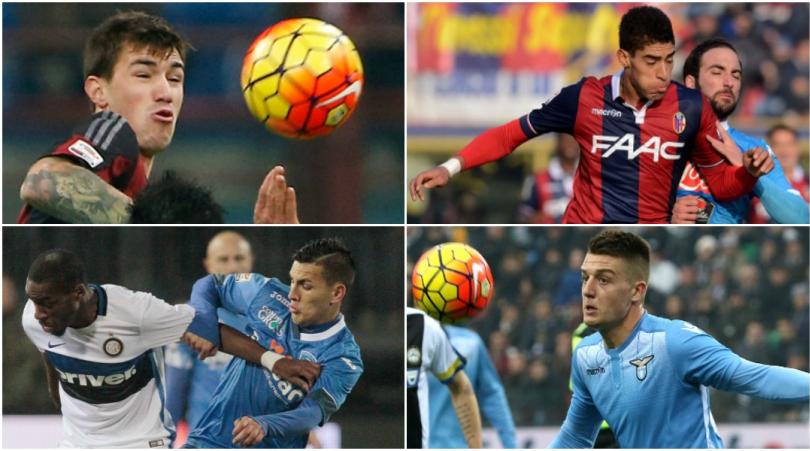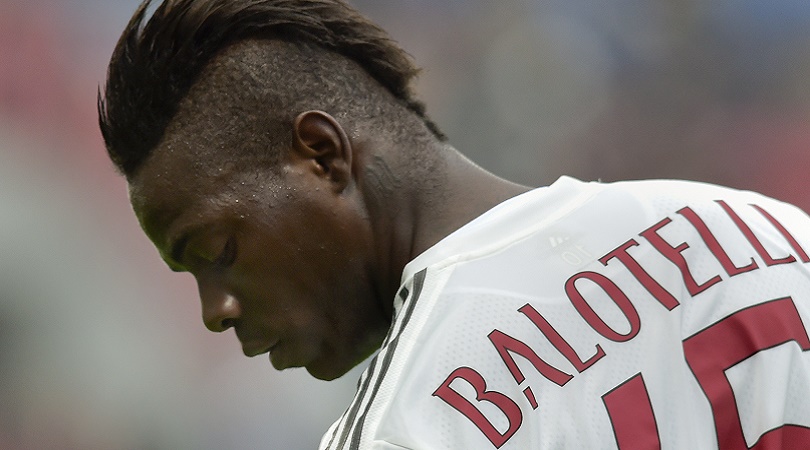
Picture an international striker and world-renowned star returning to his beleaguered boyhood club in the prime of his career, and you might expect the reactions of supporters to be wild jubilation. When Mario Balotelli secured a season-long loan back to Milan from Liverpool last summer, though, the general response from Rossoneri followers was more despondency than delight.
A poll by Gazzetta dello Sport in August revealed that 73% of Milan fans didn't support their former charge’s comeback. Even though the deal was a temporary one that involved no initial outlay, there was considerable unease at the prospect of a player who has become better known for his extracurricular antics than his goalscoring prowess back in Italy’s second city.
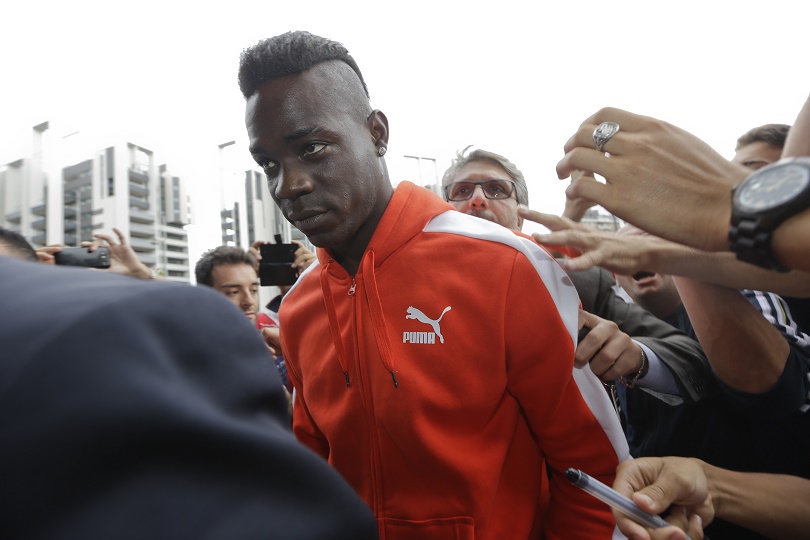
Balotelli’s first six months as a Milan player in 2013 could hardly have gone any better, the centre-forward firing 12 goals in 13 outings to drag Max Allegri’s side into the Champions League places after joining from Manchester City midway through the season. A return of 14 strikes in 30 league matches the following campaign was respectable enough, but Balotelli’s departure in the summer of 2014 wasn't exactly met with protests and riots.
As journalist Mario Sconcerti once observed: “The strange thing about Balotelli is that champagne corks are popped when he arrives but also when he leaves.”
Promising signs
It was notable that almost every outfielder rushed towards Balotelli to celebrate his opener, with Keisuke Honda, Giacomo Bonaventura and Alessio Romagnoli particularly animated as they embraced their colleague
Even if Balotelli was capable of confounding the doubters and keeping his head down in his third spell at San Siro this term (he also spent three years at Inter between 2007 and 2010), there was no guarantee he would be a success on the field. It's been a while since the 25-year-old produced the goods on a consistent basis, while his lethargic demeanour seemed an unnatural fit with the all-action, hard-running style of play favoured by new manager Sinisa Mihajlovic.
For a few short weeks, however, it seemed as though the move might work out after all. Balotelli almost single-handedly turned the Derby della Madonnina on its head in September after replacing Carlos Bacca in the 62nd minute, the loanee lifting a previously flat Milan performance and going close to both creating and converting an equaliser on more than one occasion.
The best features, fun and footballing quizzes, straight to your inbox every week.
Mihajlovic’s men may have been defeated by city rivals Inter, but many began to question whether the widespread sense of pessimism surrounding Balotelli’s homecoming had been misplaced.
That feeling grew stronger when the striker found the back of the net in his first start of the campaign nine days later, a fine free-kick against Udinese helping Milan to an important 3-2 victory at the Stadio Friuli. It was notable that almost every outfielder rushed towards Balotelli to celebrate his opener, with Keisuke Honda, Giacomo Bonaventura and Alessio Romagnoli particularly animated as they embraced their colleague.
Fitness troubles
A player who is routinely so static and listless must produce moments of magic or a consistent end product to justify his lack of contribution in the build-up, but Balotelli has fallen short in both regards
Injury intervened soon after, though, a hernia ruling Balotelli out of action until the start of 2016. Bacca plundered five goals in the meantime, M’Baye Niang impressed with his energy, speed and directness, and last season’s top scorer Jeremy Menez began to find his feet again after a lengthy lay-off of his own.
With Milan having lost only one of their last six Serie A games in the run-up to Balotelli’s return, it was always going to be difficult for him to force his way back into the XI.
Nevertheless, although Balotelli has been afforded only three starts since his recovery – two of which came against third-tier Alessandria in the semi-finals of the Coppa Italia – he has done little in his sporadic appearances to suggest he deserves a more regular role in Mihajlovic’s line-up.
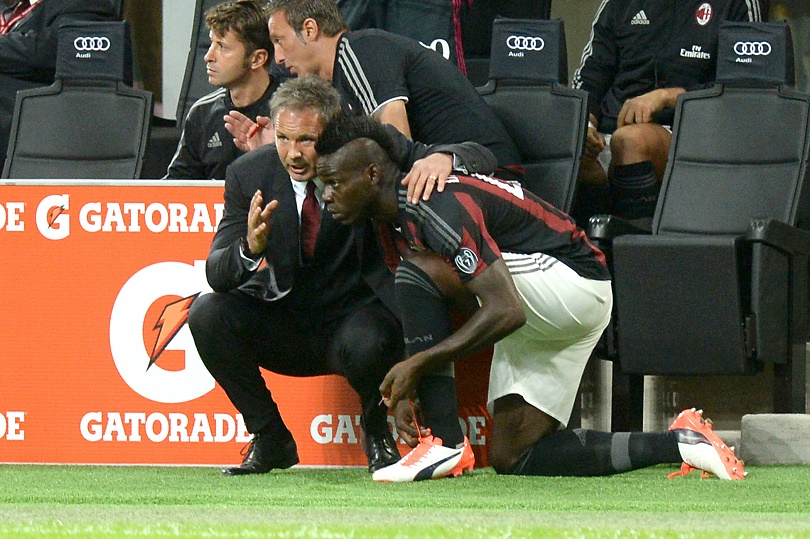
While he has successfully avoided trouble off the pitch so far this term, the familiar problems on the field remain. A player who is routinely so static and listless must produce moments of magic or a consistent end product to justify his lack of contribution in the build-up, but Balotelli has fallen short in both regards.
“I think that his physical condition is good, but psychologically he’s not quite there yet,” Mihajlovic said before Sunday’s trip to Chievo, a game in which Balotelli was left on the bench despite Milan labouring to a 0-0 draw. “He needs to improve mentally, but that has always been his problem. He has been training regularly for two months now, so physically he should be fine.
“I asked him and Jeremy Menez to do some things; they managed them once every five opportunities and we really can’t afford that. Menez has physical problems holding him back, but Balotelli does it because he can’t maintain concentration. Improvement depends on him; we all want to help him [but] first of all, he has to help himself.”
Where next?
If that seems like pretty critical stuff from Balotelli’s own manager, the assessment from a 21-year-old team-mate was even more damning.
“Mario has qualities that everyone knows,” Frenchman Niang told Calcio2000 in a recent interview. “But he must understand that the moment has come in his career for him to give his all. In this job, time goes by quickly. You come to the end of your career in a flash. If you give everything you’ll have no regrets. It’s important for him to understand that this is his moment.”
It is indeed interesting to consider what could be next for Balotelli if – as is looking increasingly likely – Milan choose not to sign him on a permanent deal this summer. It's almost impossible to see Jurgen Klopp, the king of high-tempo gegenpressing, embracing him back at Liverpool, while similar-sized outfits right across the continent will surely now consider him too much of a risk.
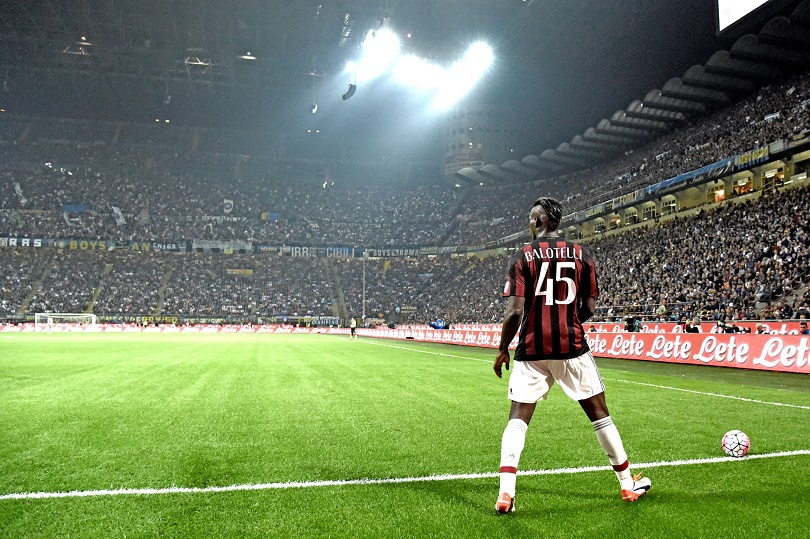
Put simply, if Balotelli’s boyhood club conclude that he's no longer worth the hassle, it would be highly imprudent of others not to take note.
“Some love stories never end,” chief executive Adriano Galliani said after the deal to bring Balotelli back to San Siro was confirmed in August. Unfortunately for Milan, many horror movies also have sequels.
Greg Lea is a freelance football journalist who's filled in wherever FourFourTwo needs him since 2014. He became a Crystal Palace fan after watching a 1-0 loss to Port Vale in 1998, and once got on the scoresheet in a primary school game against Wilfried Zaha's Whitehorse Manor (an own goal in an 8-0 defeat).
 Join The Club
Join The Club





